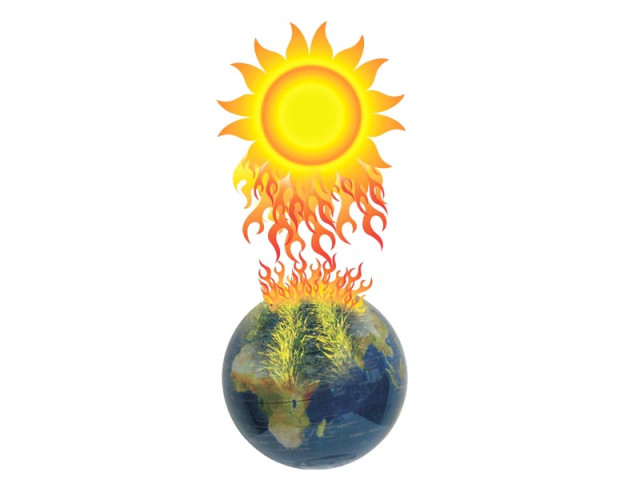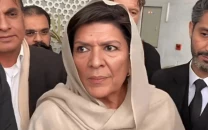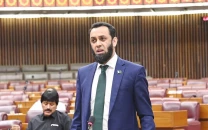Climate change: Experts call for steps to cope with challenges
Govt slow to implement recommendations.

Changes in rainfall, unpredictable variations in monsoon and potential melting of glaciers will affect water supply in the Indus. PHOTO: FILE
Pakistan needs a better institutional framework to address its vulnerability to climate change, speakers said at a seminar on Monday.
The seminar, “Climate Change Repercussions for Pakistan,” was organised by the Sustainable Development Policy Institute (SDPI) in connection with an assessment report recently released by the Intergovernmental Panel on Climate Change (IPCC).
Speakers said Pakistan was a “major victim” of climate change even though it does not significantly world greenhouse gas emissions. They said water availability, food security and human healthcare most likely to be negatively affected by climate change effects such as erratic weather patterns, changing rainfall trends and extreme weather events including floods.
But the biggest issue was that the country lacks the institutional capacity to deal with these challenges.

“The institutional framework to combat climate change is weak, fragmented and ill-resourced,” said Shafqat Kakakhel, chairperson of SDPI’s board of governors and former deputy executive director of the United Nations Environment Programme. “We urgently need an office at the federal level to deal with climate change issues, which has tentacles in the provinces and federal ministries in cross-cutting areas such as water, agriculture and health,” Kakakhel said. “The existing climate change division requires drastic restructuring.” Speakers said transferring civil servants from one department to another would not work as technical experts are required for the climate change division.
Earlier, Climate and Development Knowledge Network’s Asia Programme Deputy Director Dr Qamaruz Zaman Chaudhry and Dr Mohsin Iqbal briefed participants about an assessment report by Working Group I of the IPCC, a United Nations body. Chaudhry said the IPCC report stated that human activities led to an increase in greenhouse gas concentrations and consequently global warming.
Iqbal, head of the Agriculture and Coordination section at the Global Change Impact Studies Centre (GCISC), said if the greenhouse gas emissions are not checked, rise in global temperature would lead to more extreme weather events.
Changes in precipitation levels, potential melting of glaciers in Pakistan which have so far shown stability and unpredictable variations in the monsoon will affect the supply of water in the Indus, experts said. Consequently, crop yields and capacity for hydropower projects will be reduced.
Speakers said Pakistan could try to access global funds available for climate change adaptation and mitigation, but first the country needed a “robust institutional framework.” They said studies about the impact of climate change are available in the form of the National Climate Change Policy and work by non-governmental organisations. But a policy document is as good as its implementation, they said, and Pakistan has done miserably on the implementation front.
Iqbal told The Express Tribune that the GCISC’s research is shared with the Climate Change division and policymakers but its impact remains to be seen in terms of concrete steps taken by the government.
“Slowly and steadily, a global movement is developing to tackle climate change and Pakistan must prepare itself to become a part of the process,” Kakakhel said.
Published in The Express Tribune, October 8th, 2013.



















COMMENTS
Comments are moderated and generally will be posted if they are on-topic and not abusive.
For more information, please see our Comments FAQ